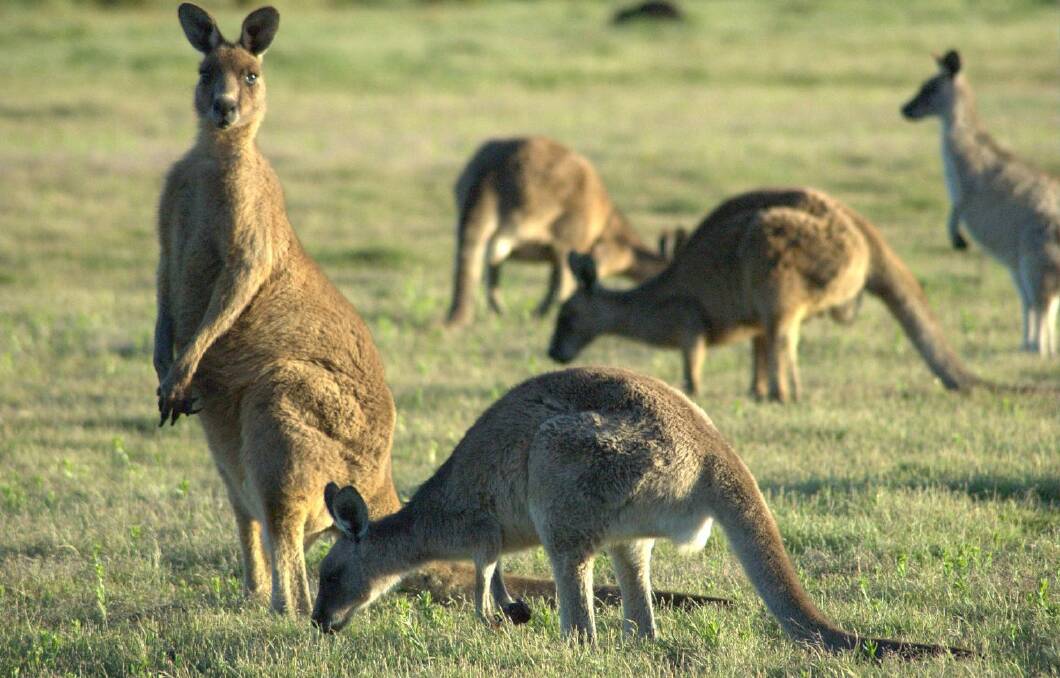
Last week I came across two pieces of news. Together they showed that our culture has become confused about what makes life valuable.
Subscribe now for unlimited access.
$0/
(min cost $0)
or signup to continue reading
The first was a report of 14 kangaroos killed that had been killed near Batemans Bay on the NSW South Coast.
The story certainly had people talking. NSW police detailed the events on their Facebook page and attracted more than 2500 comments. The vast bulk of these expressed immense grief and anger. Believe it or not, the following comments were pretty typical.
"The human race is cancer to the planet."
"What is wrong with these so called humans that they think that this killing is ok???"
"Hopefully they find who's responsible and drive said Hilux at him without stopping."
On the same day I read an article on the ABC. It told the stories of the parents of children with Down Syndrome.
Zoey O'Hehir recalled the phone call over which she learned that the child she was expecting had tested positive for Down Syndrome. In the same breath, her doctor informed her that the abortion had already been booked.
"It was very scary and just the mention of termination struck a nerve," Ms O'Hehir said. "Before I could say anything, before I could process anything or even breathe (he'd scheduled the termination)."
The O'Hehirs chose to keep their child and Arlee is now seven months. Her parents attest to the fact that "she's amazing and has brought so much happiness to our life".
It strikes me that these articles each tell very different stories about the value we ascribe to life.
Had the ABC published an article about families who had chosen to end their pregnancies I cannot imagine the kind of outpouring of anger which the death of those 14 kangaroos stirred up.
Indeed, quite the opposite is likely. Essential Guardian polling in 2019 showed that as the NSW parliament debated liberalising our abortion laws, 71 per cent of people supported the Bill.
In terms of real world behaviours, the Disability Royal Commission found that "data from Western Australia suggests that in Australia, most women for whom a confirmed prenatal diagnosis of fetal Down syndrome is made, choose to terminate the pregnancy (93%)."
Down Syndrome Australia chief executive Dr Ellen Skladzien has spoken of her organisation's research into why this was the case.
"We heard about doctors who told families that their child would have a lifetime of suffering or that they would never achieve anything."
A quick Google search will countless stories of parents who echo Dr Skladzien's findings.
Our society laments that some people face the 'need' to make the heart wrenching decision to end a pregnancy. And I don't doubt that this sadness is genuinely felt.
However the experience of countless people attests to the fact that we have somehow convinced ourselves that some lives are not worth living. That the sad decision to end a pregnancy is nevertheless the right and compassionate decision in the face of the struggles we imagine a disabled person may face.
Thankfully God's verdict on human life is that it is inherently valuable. By sending Jesus, God has ensured that our lives might not be destroyed, but instead that
"the lame leap like a deer,
and the mute tongue shout for joy.
Water will gush forth in the wilderness
and streams in the desert."
We may imagine that some conditions are not worth living with. We might look at the sufferings and struggles that some people go through and imagine that if we were in that situation we'd rather our life be ended.
Jesus looks at such lives and sees value. And he promises to renew and restore all those who seek him.

